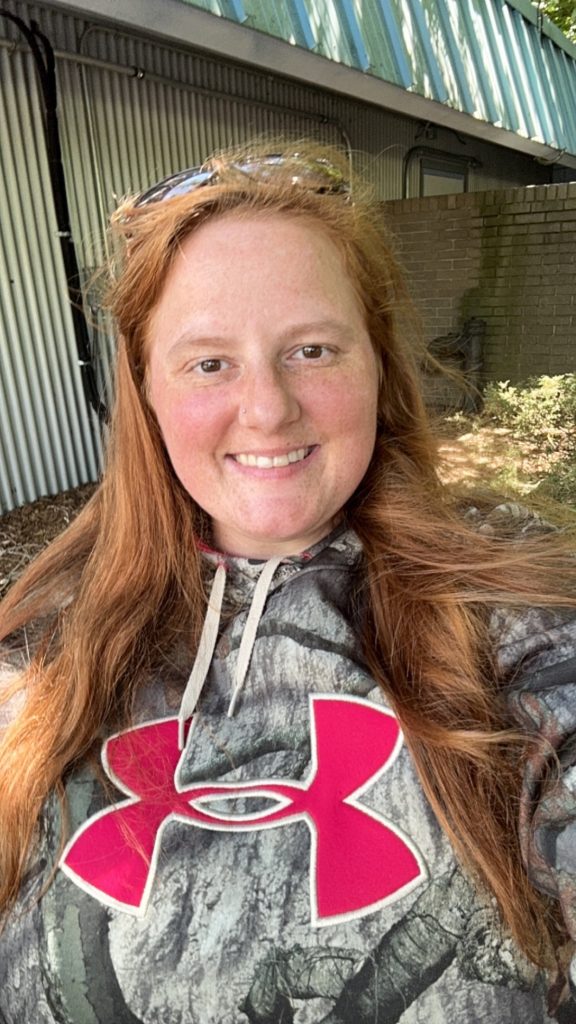Danielle Kraft
One day in July 2016, Danielle Kraft sat in a shoddy motel room, high on crack. It wasn’t even her usual drug of choice (meth). It was the only thing she could get her hands on; she was so desperate to get high.
“For me, that was the lowest, being in that motel room. My family didn’t know where I was. I would have done anything that anybody would have given me at that time. I was so far gone in that moment, in that week,” she said. “I still can’t believe I got sober that same week.”
Kraft had been sinking into drugs for the past year-and-a-half. A few months prior to that moment of clarity in the motel, her grandmother texted her to say she loved Kraft, but it was hurting her too much to be in Kraft’s life.
“Part of (what pushed me into recovery) was my grandma and the strain in our relationship. Because nobody ever loved me the way my grandma did, so it was her saying that she didn’t want to be in my life and didn’t want to witness this,” she said. “And then also all my younger siblings, I wasn’t anything that they could look up to. I was a disappointment.”
“I was a foster kid. I was becoming a statistic, and I didn’t like that,” she said, referring to higher rates of substance use disorder diagnoses among aged-out foster youth than youth in the general population. “I just knew that I could do better and be better and that this wasn’t who I was.”
Kraft drove to her adopted mother’s house in Tennessee. She suffered through withdrawal on the couch for days while her young siblings played around her. She never touched drugs again.
How BWROC Made a Difference in Kraft’s Life
At first, Kraft struggled through recovery alone. But then in the summer of 2020, after the encouragement of a friend, she walked into a Blue Water Recovery and Outreach Center (BWROC) Thursday night recovery Bible study.
“I can definitely say that it changed my life. I do not think that I would be as active in my church today as I am, as active in my community as I am, and I wouldn’t have the friends that I have in my life if it had not been for that decision to walk into BWROC,” Kraft said. “Feeling alone is not a good feeling. Having community is so important.”

A nonprofit recovery community organization founded in 2017, BWROC offers a unique, peer-driven, non-clinical support system.
BWROC’s employees, peer recovery coaches, and volunteers are usually in recovery themselves. This real-world experience allows them to empathize with program participants who are new to or struggling with recovery. The organization was awarded the prestigious CAPRSS Accreditation by the Council on Accreditation of Peer Recovery Support Services, a testament to BWROC’s dedication to providing participants with the highest quality service.
Creating Community as a Cornerstone to Recovery
Now, Kraft loves her life.
She helps lead a youth group in her church. She is a board member of a local nonprofit. She is the general manager of a Tropical Smoothie. She coaches soccer through her church.
She has two sons, Forrest, 5, and Gabe, 2, with her long-time boyfriend, Mark.
“I only want people in my life who can contribute positively. I need people with good attitudes,” Kraft said. “I want good people in my circle because for so long, I had all the wrong people in my life, and I spent so long trying to get the approval of the wrong people.”
As a foster child, Kraft moved schools constantly. The instability led her to seek love and approval from the wrong people, who pushed her to try drugs for the first time and enabled her in her active substance use disorder.
Kraft advised those who are new to recovery to find a positive community of like-minded people.
“Don’t hang out with the wrong people because they have no interest in seeing you be better,” she said. “Surround yourself with the right people; it’s so important to continue recovery. Find a community who will support you and accept you.”
If you or someone you know is struggling with addiction, learn more about what you can do by contacting the Blue Water Recovery and Outreach Center at (810) 689-4858 or via email at contact@bwroc.org.
Photo: Danielle Kraft with her sons, Gabe and Forrest, and her long-time boyfriend, Mark.
